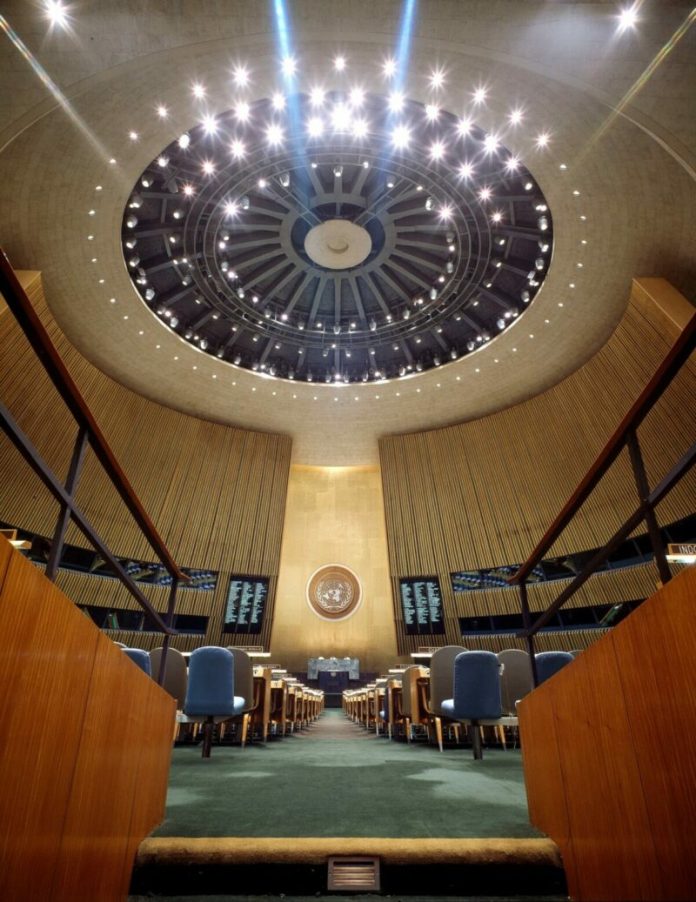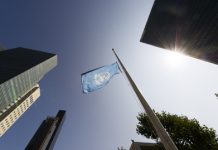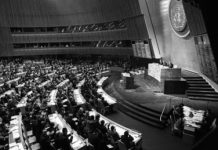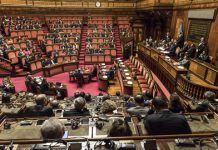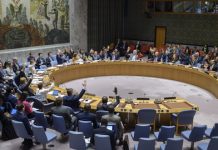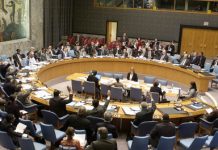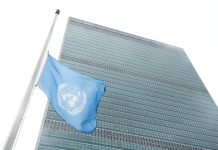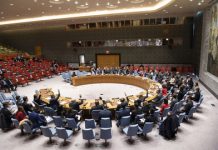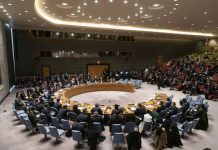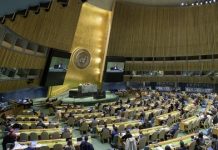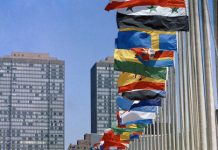Syria’s disappeared: relative of Assad regime’s victims speaks of anguish searching for truth and justice
The relative of two victims tortured and murdered by the Assad regime has spoken of the anguish caused by their enforced disappearance during the country’s civil war.
Obeida Dabbagh’s brother Mazan and his nephew Patrick – who were both Syrian-French nationals – were arrested by Syrian Air Force Intelligence Assad in November 2013.
They were held for years and tortured, according to witness testimonies.
Mr. Dabbagh – speaking to the Committee on Enforced Disappearances in Geneva – insisted that his uncle and nephew were not involved in protests against President Assad. They were declared dead in 2018.
“The Syrian regime, in addition to torture and executions, extorted money from our family, promising us information or release in exchange for exorbitant sums, before expelling [Mazen’s] wife and [his] daughter from our family home in Damascus. Despite these hardships, my commitment remained intact. I refused to give in to fear and pressure. This fight goes beyond my family. It is part of a universal quest for justice and against impunity for war crimes. Through this legal action, I wanted not only to obtain justice for Mazen and Patrick, but also to participate in the global fight against the atrocities committed by the Syrian regime.”
The panel on enforced disappearances examines how countries implement the international covenant banning the practice. It was adopted by a UN General Assembly resolution that came into force in December 2010. Seventy-seven countries have signed up to the treaty.
Gaza: Israeli blockade continues to hamper aid and relief work
To Gaza and the West Bank, where the UN Children’s Fund, UNICEF, has warned that nearly all the 2.4 million children there have been affected by the ongoing conflict and violence.
UNICEF Middle East and North Africa Regional Director Edouard Beigbeder expressed deep concern at the situation in Gaza at the end of a four-day assessment mission.
He said that roughly one million children now live without the very basics they need to survive because of the Israeli aid blockade.
This includes more than 180,000 doses of essential childhood routine vaccines, enough to fully vaccinate and protect 60,000 children under two, as well as 20 lifesaving ventilators for neonatal intensive care units.
It has now been more than two weeks since Israeli authorities closed all crossings into Gaza.
Here’s Olga Cherevko from the UN aid coordination office, OCHA:
“When the ceasefire took hold, we were able to deliver life-saving support to hundreds of thousands of families. This includes food, water, medicine, shelter, support and much, much more. And with it, we delivered hope that hope is now turning into worry, into fear that we are running out of supplies. Time is not on our side. It is imperative that the flow of supply is restored. Aid must be allowed to enter.”
Interest payments outweigh climate investments in almost all developing countries
Global finance news now and a warning from UN economists UNCTAD that almost all developing countries pay more in interest on their debts than essential climate resilience investments.
UNCTAD chief Rebeca Grynspan said that today’s global financial architecture comes at a high cost to developing countries who suffer from chronic under-investment.
There is still no universal safety net to shield countries from external shocks, or any multilateral financial system to provide affordable long-term resources at scale, Ms. Grynspan continued.
UNCTAD data shows that 3.3 billion people live in countries that spend more on servicing their debt than on health or education.
In 2023, the average developing country spent 16 per cent of their export earnings to service their debt, which is more than three times the limit set for Germany’s post-war reconstruction, Ms. Grynspan explained, at the start of the UN agency’s International Debt Management Conference seeking solutions for the management of public debt, transparency and good governance.
Daniel Johnson, UN News
Music composed and produced by Joachim Harris. All rights reserved
Source of original article: United Nations (news.un.org). Photo credit: UN. The content of this article does not necessarily reflect the views or opinion of Global Diaspora News (www.globaldiasporanews.com).
To submit your press release: (https://www.globaldiasporanews.com/pr).
To advertise on Global Diaspora News: (www.globaldiasporanews.com/ads).
Sign up to Global Diaspora News newsletter (https://www.globaldiasporanews.com/newsletter/) to start receiving updates and opportunities directly in your email inbox for free.


